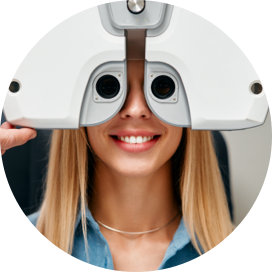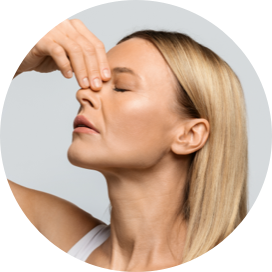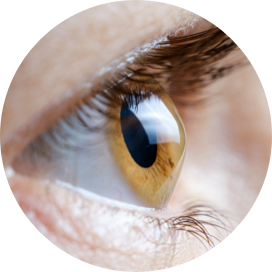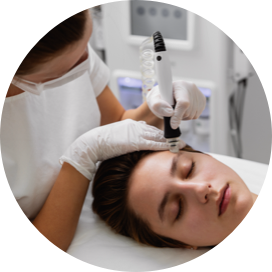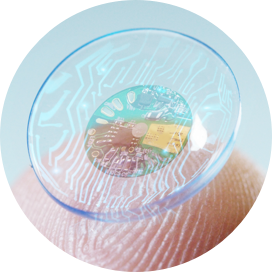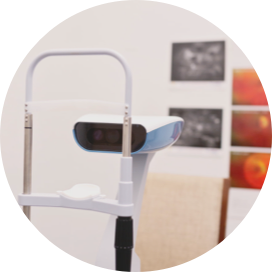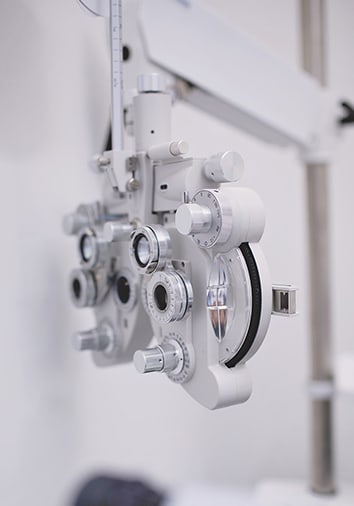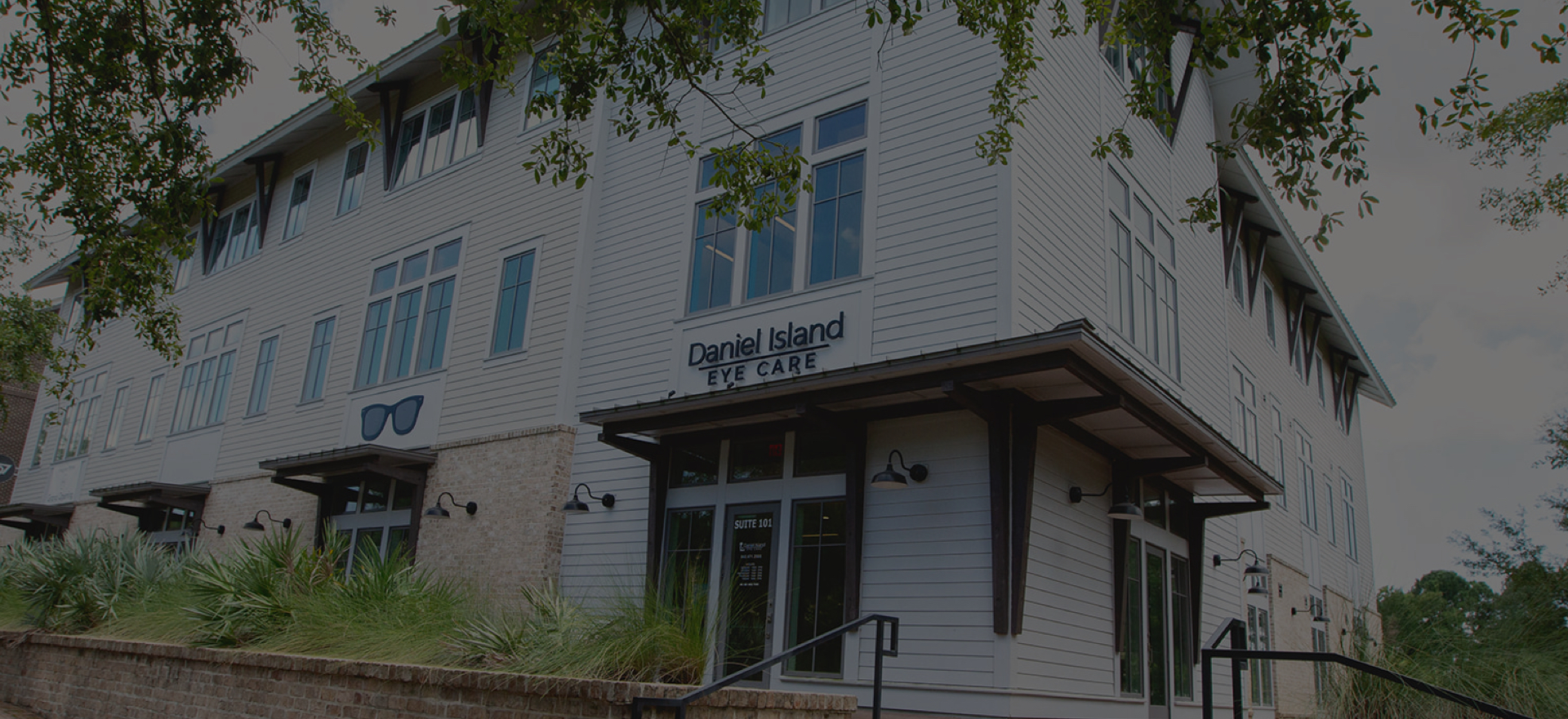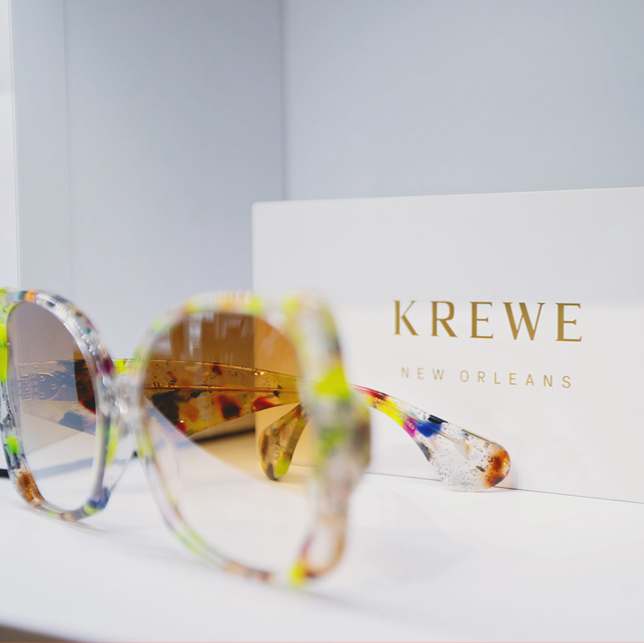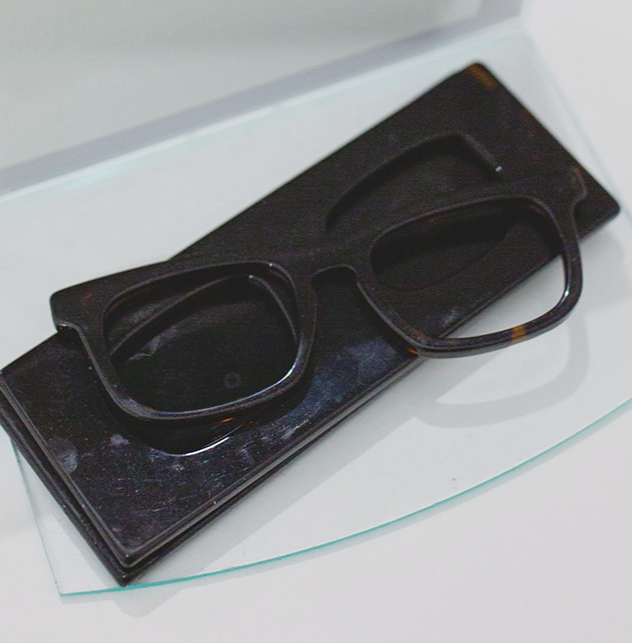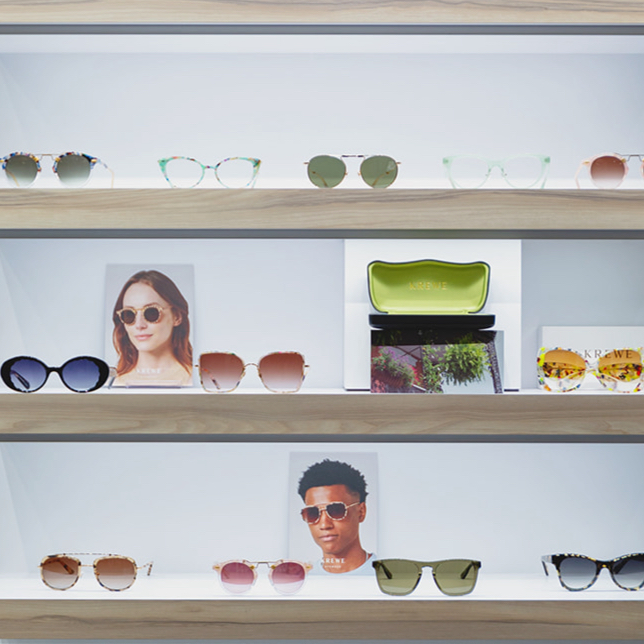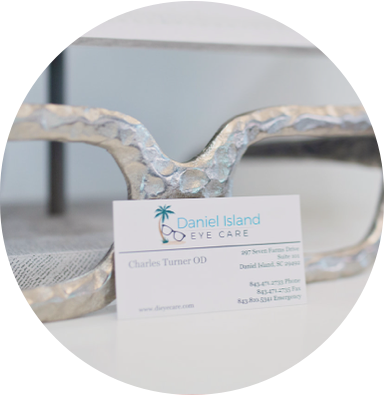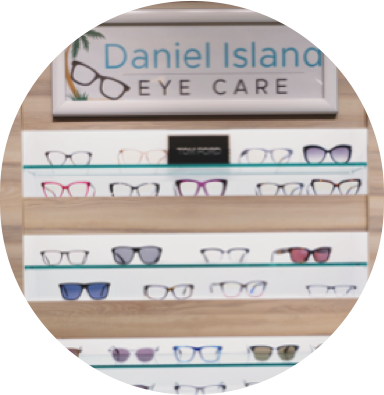There’s always been a looming presence of misinformation in healthcare, long before the rise of social media. You’ve probably heard it at the dinner table: coffee stunts your growth or carrots improve your vision.
Or how about this one: glasses make your vision weaker.
We’re here to set the record straight. No, glasses do not make your vision worse; they are an incredibly helpful tool that allows you to see clearly.
Even with prescription glasses, it’s normal for your eyesight to change over time. Staying on top of your routine eye exams can make these changes feel more gradual than sudden.
The Myth Debunked: Why Glasses Don’t Harm Your Vision
The belief that glasses worsen your vision is purely anecdotal.
When you first start wearing glasses, everything becomes crystal clear. Then, when you take them off, the world seems blurrier than you remember. This stark contrast creates the illusion that your vision has gotten worse because of the glasses.
Your eyes don’t become “dependent” on glasses in the way you might rely on caffeine or medication. Glasses are simply a tool that corrects refractive errors. When you wear glasses, you’re not changing your eyes’ physical structure or making them weaker.
What’s really happening is that your brain gets used to seeing clearly. Once you experience sharp, corrected vision, going back to uncorrected vision feels more noticeable.
The Truth About Eyeglasses
Glasses have been around for centuries and have come a long way since their inception. Lens technology evolves and frame trends come and go, but one thing remains the same: how glasses work.
Glasses correct refractive errors—eye conditions that affect the eye’s physical shape. Instead of an eye being round, these conditions can either elongate the eye (myopia) or irregularly curve the eye’s cornea or lens (astigmatism). So, when incoming light enters the eye, it can’t properly focus on the retina, resulting in blurry vision.
Each eyeglass lens is crafted for your vision prescription, redirecting light so it hits the retina in just the right spot. Since glasses rest comfortably on the bridge of your nose, all of this corrective work happens outside of the eye.
In other words, the glasses do the work, not your eye muscles. Your eye muscles aren’t getting “lazy” or “weak” from wearing glasses. They’re simply not having to work harder to try to focus light that’s hitting them at the wrong angle.

Why Is My Vision Changing?
Glasses don’t make your vision weaker, but that doesn’t mean your eyes are immune to changes. Even with glasses, you might notice shifts in your vision over time. This doesn’t mean they aren’t working; rather, it’s a sign that suggests it’s time to visit your eye doctor.
We normally see fluctuating vision in children because their eyes are still growing, but your vision can change for a variety of reasons, some more harmless than others:
- Age-related changes: Presbyopia is the most common example. Starting around age 40, the lens in your eye becomes less flexible. This makes it harder to focus on close objects, which is why many people need reading glasses or multifocal lenses as they get older.
- Health conditions: Sometimes visual changes stem from health conditions, such as diabetes, high blood pressure, certain medications, or eye diseases and conditions. If you notice sudden shifts in your vision, visit your eye doctor immediately.
- Lifestyle: Modern life presents new challenges for our eyes, such as digital eye strain. While this doesn’t permanently damage your vision, it can cause temporary symptoms and may contribute to myopia progression in children.
This is exactly why we emphasize the importance of routine eye exams: to support your vision and identify any concerns early. Even in the span of a year, your eyesight can change more than you think.
Not Wearing Your Glasses? Think Again
Not wearing your glasses does more harm than good, leading to uncomfortable symptoms, such as:
- Eye strain and fatigue
- Headaches
- Difficulty concentrating
- Squinting, which can lead to facial muscle tension
This is especially harmful to children. Uncorrected vision problems can lead to amblyopia (lazy eye) or contribute to myopia progression, leading to further problems down the line. Because children’s eyes are so responsive to treatments, catching and correcting vision problems early, thanks to annual eye exams, helps promote healthier vision for years to come.
Adults aren’t off the hook either. If you skip wearing your glasses, the discomfort can feel, well, uncomfortable, taking a toll on your day-to-day life. You’re not harming your eyes, but you’re definitely not doing them any favors either.
If you don’t like the way glasses look or feel, switch to contact lenses! They require more maintenance and care, but if it encourages you to wear corrective lenses, the effort is well worth it.
Keep Your Eyes Healthy & Strong
Let’s be honest. On a personal level, many of us hate it when we have to work more than we need to, so why should our eyes have to put up with this? Your eyes deserve better, and so do you.
Give your glasses a chance. Many people find that once they start wearing them regularly, they wonder how they ever managed without them! That’s not dependency—that’s just experiencing the difference between struggling to see and seeing clearly.
If you find yourself squinting with your glasses or it’s been a while since you’ve sat in an exam chair, it’s time to visit Daniel Island Eye Care for your routine eye exam. Your future self will thank you.


